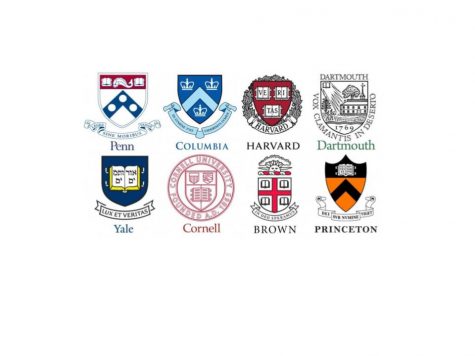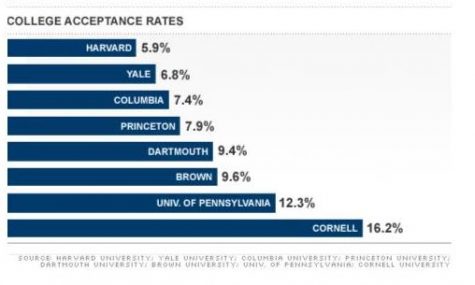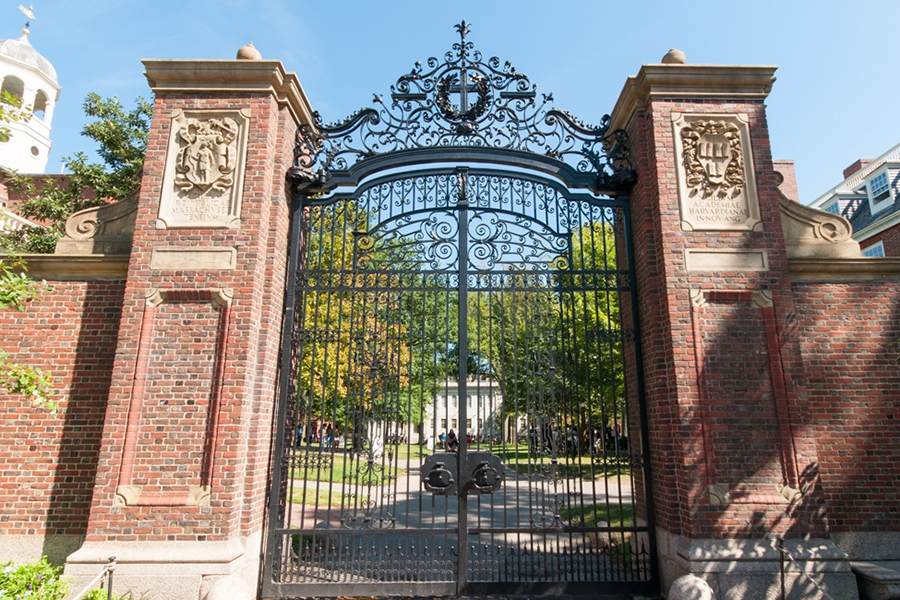Are Ivy League Schools Worth it?
April 16, 2020
Ivy League schools are known worldwide for their prestige, high quality of academic excellence, and promising career opportunities for their students. They are home to some of our generation’s brightest minds, filled to the brim with intellectual powerhouses and highly sought after professors. Many students dream of the day they’d get to attend these universities and walk through their time-honored halls. However, these universities also come with a hefty price tag, a strenuous (to say the least) admissions process, and they may not be an ideal education for many.
First of all, there’s no doubt that an Ivy League education is very worthwhile for many. As senior Nae Nae Chairatchaneeboon says, “I think it is also crucial to keep in mind the benefits of attending a prestigious institution, such as an Ivy Leauge university, which include having access to world-renowned college professors, funding, quality research facilities, etc.“ Ivy League schools are also very good at establishing students’ careers and have a vast alumni network fostering many connections into certain industries. However, are they really worth it?
 One important thing to consider is the financial situation. While these universities do offer some scholarships and financial aid, they still leave students with massive amounts of student debt, adding to the already horrific student loan crisis in the United States. According to Anthony O’Neil, a best-selling author on financial advice for teenagers transitioning into the world, student loan debt has far surpassed credit card debt at 1.6 trillion dollars. “We’re seeing an average of $35,000 in student loan debt per student at the time of graduation.”
One important thing to consider is the financial situation. While these universities do offer some scholarships and financial aid, they still leave students with massive amounts of student debt, adding to the already horrific student loan crisis in the United States. According to Anthony O’Neil, a best-selling author on financial advice for teenagers transitioning into the world, student loan debt has far surpassed credit card debt at 1.6 trillion dollars. “We’re seeing an average of $35,000 in student loan debt per student at the time of graduation.”
Dave Ramsey urges students to think about it like this ”The cost of attending Harvard in the 2015–2016 school year is $60,000, including room, board, and fees. Even if a student manages to get half their tuition covered for four years, they will still owe $120,000 when they graduate.” And the tuition and fees have only gone up from there, now at approximately 78,000 dollars.
The National Association of Realtors conducted a survey and found that “41% of millennials say they want to get married but can’t because of their student loan debt. Over 50% said they’re waiting to start a family because of it.” This data clearly shows a significant impact on people’s lives after college as a result of their student debt, demonstrating the importance of considering your financial situation before you apply or accept admission. As college counselor Mr. Weiser said, it is important to consider “Financial Fit – Can the family afford it if admitted? Merit aid?”
Next, the social prestige surrounding Ivy League schools. Societally speaking, it is a wide assumption that Ivy League universities are the best fit for every student that can gain acceptance, that each of these students will thrive in said environment, and that the Ivy League schools are the ultimate path for success. For some students, this might speak the truth, for others, not so much. These types of generalizations, internalized by many parents and students themselves are simply not true. Mr. Weiser commented, “Many students say, “I want to go to a good university,” but “Good” is different for each student. Yes, for some students, highly selective universities would be “good” schools for them, but there are also many other schools throughout the world that would be “good” universities. Many students believe they can only flourish at a highly selective school, or they can only reach their desired goals in life by attending a highly selective school, that just isn’t true.”
An anonymous student stated, “I think that some students are unfortunately negatively influenced by their parents and peers, making themselves believe they need to get into these schools that are at such a high standard.” A study from New York University looked into this pressure, interviewing many teachers and students at highly selective private high schools. They found that pressure from parents was pushing the school to push on students. This intense pressure fueled “college-level burnouts” and ultimately led to chronic stress and a culture of substance abuse within the school. An experienced teacher in this study stated that “Parents are coming in and thinking, I’m (spending a lot of money) and I need to get something, a very tangible something. A great education is not a tangible something; a diploma from Harvard, Princeton or Yale …that’s tangible.”
 Senior Nathan Lundy commented on the social stigma of Ivy League schools saying, “when people mention that they got into an Ivy league school bystanders say “Oh that’s a hard school to get into ”but they never complement the education that’s there just the process of getting in. It is that same stigma that gives community colleges and trade schools a bad reputation.
Senior Nathan Lundy commented on the social stigma of Ivy League schools saying, “when people mention that they got into an Ivy league school bystanders say “Oh that’s a hard school to get into ”but they never complement the education that’s there just the process of getting in. It is that same stigma that gives community colleges and trade schools a bad reputation.
What many students don’t realize is their individual fit to a university. While you can get a great education at Ivy League schools, you can also get a great education at other universities more suited for you, academically, socially, financially, and admissions-wise. It’s all about finding what fits you as an individual and your situation, Ivy League or not.
Chairatchaneeboon ultimately decided that an Ivy League education best suited her, deciding to go to the University of Pennslyvania. She stated that “I value having access to renowned professors, research facilities and a passionate student body. While there are many institutions that may fulfill these criteria, an Ivy League institution such as UPenn suits my interests the most, as I am particularly interested in their economics and social impact program. I knew I wanted to be in an environment where students are passionate and keen to raise awareness about their causes.”
All in all, everyone is different in their goals and best fits for college. It’s important for each person to make an informed decision themselves about their education, not held back by social stigmas or a lack of understanding. As Lundy stated “Just go to your school and get your education and don’t worry about the name of the school on your college diploma when you graduate. We’ll make a difference in the world no matter where we go.”

Kevin Callahan • Apr 18, 2020 at 3:47 pm
Another excellent article, Maggie, well done! Great finish too!